Academic Partners
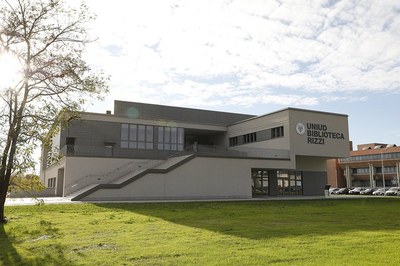
The University of Udine has over 15000 students, more than 600 lecturers, approximately 500 technicians and administrative staff. It is supported by eight Departments. There are a total of 80 degree courses, coordinated by the Departments, distributed in four areas: economics and law, medicine, science, humanities and education. About 15 international courses with double degree awarding involve European countries and North and South American states. There are around 20 Schools of Specialisation and more than 10 PhD courses.
C-NET project is coordinated by prof. Sara Colussi, member of the Group of Catalysis for Energy and Environment at the Polytechnic Department of the University of Udine.
Role of the University of Udine in C-NET is to design and develop novel efficient and stable non-CRMs as DFMs and electro-catalysts for CO2 conversion by mechanochemical synthesis, exploiting the potentialities of this method for the preparation of highly dispersed metal-based materials with unique characteristics.
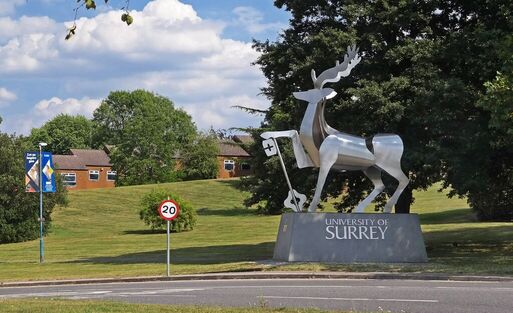
The University of Surrey is a leading research university located in Guildford, United Kingdom, renowned for its innovative research and strong industry engagement, particularly in the fields of chemistry, chemical engineering, and sustainability. The School of Chemistry and Chemical Engineering offers state-of-the-art facilities and a collaborative environment for multidisciplinary research, spanning areas such as carbon capture and utilisation, catalysis, life cycle assessment (LCA), and advanced reactor technologies. Surrey has a proven track record in developing integrated solutions for environmental challenges and maintains strong links with both academic and industrial partners worldwide.
The role of the University of Surrey in C-NET is to advance combined CO₂ capture and catalytic conversion processes, with a particular focus on dual-function materials (DFMs) and the integration of reactor systems. The Surrey team brings expertise in experimental testing, computational modelling, and environmental impact assessment. A core element of Surrey’s contribution is the application of LCA to evaluate the environmental performance of new capture and conversion technologies across their entire value chain. By identifying sustainability hotspots and quantifying potential reductions in greenhouse gas emissions and resource use, the team will provide guidance for process optimisation and decision-making within the consortium. Surrey will also contribute to training activities and foster knowledge exchange across the consortium.

The Norwegian University of Science and Technology (NTNU) is an international oriented university with headquarters in Trondheim Norway. NTNU has a main profile in science and technology, a variety of programmes of professional study, and great academic breadth also including the humanities, social sciences, economics, medicine, health sciences, educational science, architecture, entrepreneurship, art disciplines and artistic activities. The university's root goes back to 1760 with the foundation of Trondheim Academy. NTNU is Norway's largest university with more than 40 000 students and almost 9000 employees. NTNU participates in more than 600 European collaboration projects, and has a long tradition of hosting international exchange researchers (https://www.ntnu.edu/).
The role of NTNU in C-NET is to improve CO2 valorisation processes by catalyst design, advanced catalyst characterisation and kinetic evaluation. The Catalysis Group at the Department of Chemical Engineering (https://www.ntnu.edu/chemeng/research/catalysis#/view/about) organises research and teaching in catalysis, reaction kinetics, petrochemistry and related subjects. It is the largest catalysis group in Norway and the main arena for education of PhD and MSc candidates for Norwegian industry and research institutes. The research areas of the Catalysis Group include Industrial Catalysis, Biofuels, Environmental Catalysis, Fundamental Studies in Heterogeneous Catalysis, Microstructured Reactors and Membrane Reactors, Production and Application of Carbon Nanomaterials, Gas Cleaning, Photocatalysis, Production and application of Hydrogen and Ammonia, Natural Gas Conversion, Materials Development, etc.
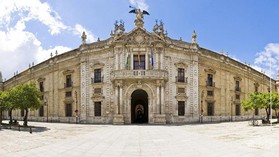
Founded in 1505 the University of Seville (USE) is the third largest university in Spain with over 70000 students and more than 4000 academic staff. USE offers 111 master programs and 32 doctoral programs and it is committed to international research with over 100 European ongoing projects. Research is carried out in 134 academic departments, in 8 joint research centres USE - Spanish National Research Council (CSIC) and 10 university research institutes. USE embraces academia, industry, engineering and science and provides an intellectual reference in the South of Europe, with a powerful educational and technological infrastructure.
USE participates in C-NET through Surface Science & Catalysis laboratory (SURFCAT) being Prof. Tomas R. Reina the main contact for the project. SURFCAT possess over 40 years of experience in catalysis for energy and environmental applications and their labs at the Materials Science Institute are fully equipped with automatised catalytic rigs, microchannel reactor manufacturing devices, operando spectroscopy and state of the art characterisation infrastructure. All these facilities are available to deliver C-NET activities. USE´s lead the project activities related to training and knowledge exchange on structured catalysts and microchannel reactors manufacturing.
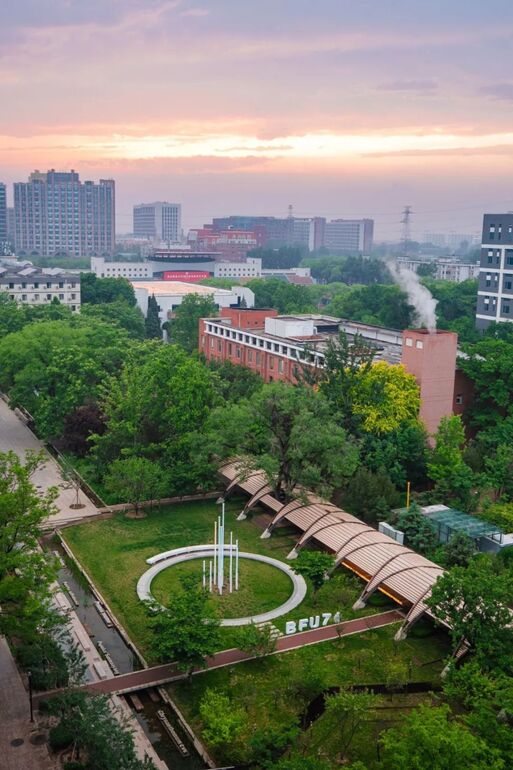
Beijing Forestry University (BFU) is a national key university directly under the administration of the Ministry of Education, jointly established by the Ministry of Education, National Forestry and Grassland Administration and the People’s Government of Beijing Municipality. It is the first batch of key universities of “Project 211”, the pilot university in the national program of “The Innovation Platform for Prioritized Academic Disciplines”, and the national “Double First-Class” university. Drawing on its solid foundation in biology and ecology, BFU is a national key university that not only emphasizes a balanced and coordinated development of programs across various disciplines such as agriculture, science, engineering, management, economics, law, philosophy, education, and arts but also takes pride in its unique and distinguished areas of expertise such as Forestry, Landscape Architecture, Forestry Engineering, Soil and Water Conservation and Desertification Control, Grassland Science, and Agricultural and Forestry Economic Management. BFU is currently composed of 17 schools that jointly offer 65 undergraduate programs, 69 master programs, 32 doctorate programs. BFU has a strong faculty with 1,470 full-time teachers, including 1,046 professors and associate professors. BFU has launched extensive cooperation in scientific research and education with over 190 universities/institutes in 40-odd countries/regions all over the world.
BFU participates in C-NET through Environmental Functional Nanomaterials laboratory with Prof. Qiang Wang as the main contact for the project. The EFN lab is particularly interested in the design and synthesis of functional nanomaterials for CO2 capture and utilization. In the C-NET project, EFN lab is happy to have training and knowledge exchange on CO2 capture and electro-catalytic conversion of CO2, with all the participated academic partners in C-NET.
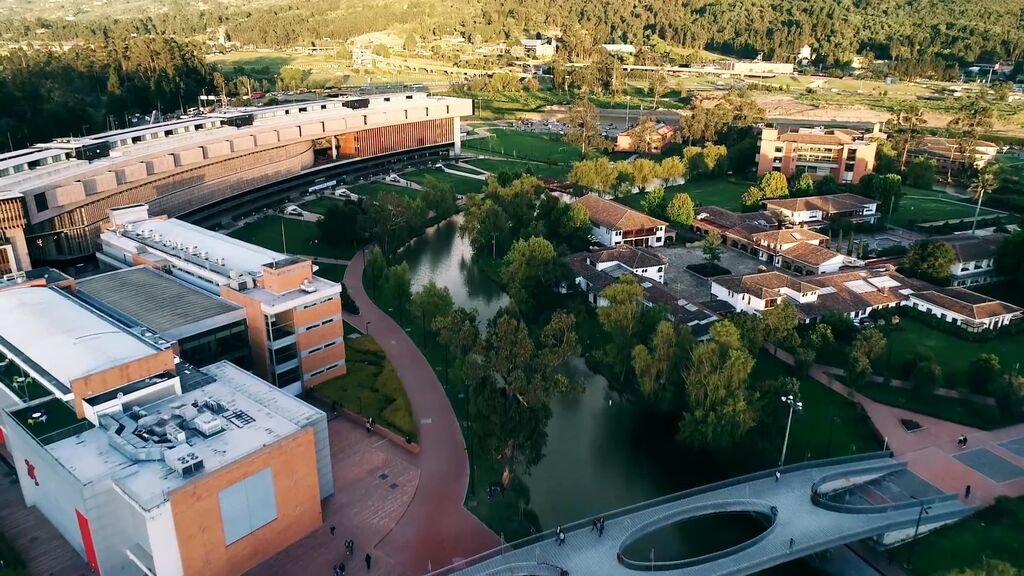
University of La Sabana is a leading higher education institution in Colombia, located near Bogotá. It has more than 12,000 undergraduate and graduate students, supported by over 1,200 faculty and academic staff. The University is structured into 8 schools, including Engineering, Medicine, Business, Law, Communication, Philosophy, Nursing, and Education, offering more than 150 undergraduate and postgraduate programs. La Sabana has a strong international orientation, with partnerships with over 180 universities worldwide, providing opportunities for double degrees, exchange programs, and collaborative research. The University is recognized for its emphasis on innovation, sustainability, technology transfer, and strong ties with industry, government, and society.
The Faculty of Engineering leads research in areas such as sustainability, energy transition, applied materials, digital transformation, and advanced process engineering. It offers undergraduate, master’s, and doctoral programs, and actively promotes collaborative projects across the quadruple helix.
The Energy, Materials and Environment Laboratory (GEMA) belongs to the Faculty of Engineering and has developed robust infrastructure for biomass valorization, catalytic systems design, process integration, and advanced materials characterization. GEMA’s expertise includes catalysis, thermal and biotechnological processes, as well as process simulation and life-cycle assessment. The group has extensive experience in research projects related to CO₂ capture and utilization, hydrogen-based energy, and sustainable technologies.
Role of the University of La Sabana in C-NET is to contribute to building a network of experts working in complementary scientific areas to promote advancements in the “net zero carbon” field. Specifically, through GEMA, La Sabana will guide in-situ DRIFT experiments for kinetic modelling and mechanistic understanding of CO₂ circular valorisation processes, strengthening the synergistic collaboration with partner institutions.
Industrial Partners
Founded in 1898 by Dr Carl Auer von Welsbach, Treibacher Industrie AG is still headquartered in Althofen, Austria. From here we develop, manufacture and supply high performance intermediates for technologically advanced applications to customers around the world. Our fine chemicals based on rare earths and their compounds are used in a wide range of applications - from pharmaceuticals to catalysts and polishing agents. Our High Performance Ceramics and Hard Metals divisions serve industries such as bioceramics, electroceramics, precision investment casting and hard metal manufacturing. Our extensive portfolio of speciality alloys includes ferro-alloys for the steel and foundry sectors, as well as materials for energy storage. Treibacher is also Europe's leading market and technology provider in the recycling of spent catalysts from the oil industry - saving thousands of tonnes of primary raw materials such as vanadium, nickel and molybdenum every year.
With our advanced materials and innovative processes, we make a significant contribution to sustainability, environmental protection and improved quality of life. Today, Treibacher employs approximately 900 people worldwide - with around 10% dedicated to research and development.
Virtualmech comprises a highly specialized technical team that has extensive knowledge on the different sectors of the industry, such as Renewable Energy and its Storage and Transport. The unique Value Proposition is offering our clients real results and solutions to difficult problems, always adapted to their specific issues. We achieve these results thanks to data gathering through computer simulation, experimental measurements, and embedded systems (trains, cars, drones) that we offer to our clients so they can make effective decisions based on objective criteria.
The role of Virtualmech in the C-NET project is focused on computational mechanics simulation to help understand and master catalytic reactions for CO2 valorization and conversion, through CFD applied to particle flows with active and inert species.

